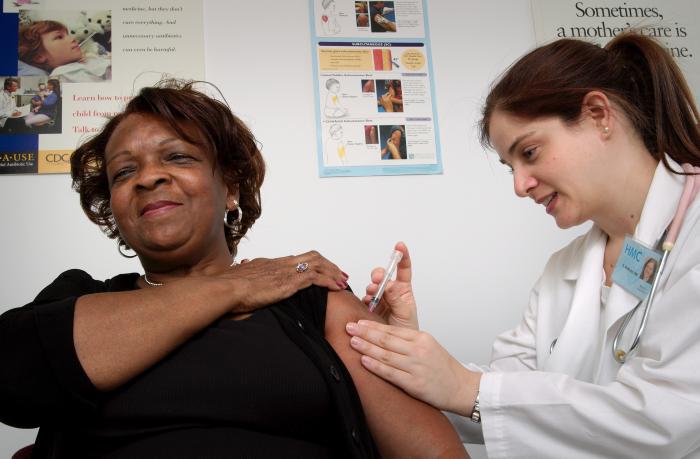August 28th, 2013
Vaccination Against Pertussis – Is It Worth the Trouble?
Paul Bergl, M.D.

According to a study in the BMJ, the pertussis vaccine appears to be 53% effective against clinical infection in a “real world” setting.
“Four out of four!” exclaimed a proud PGY1 as she handed me the billing sheet for her last patient in continuity clinic.
“Four out of four?” asked I.
“Yes, I gave all of my patients their updated Tdap today,” she boasted.
As her preceptor, I commended her for her commitment to routine health maintenance — you know, the supposedly routine tasks that, instead, routinely get pushed to the bottom of the patient’s problem list. I remarked that I had only administered a total of four Tdap vaccines in my 3 years in resident clinic.
Of course, I was exaggerating, but I admit that immunizations often got lost in the shuffle of resident continuity clinic. After an exasperating primary care encounter, the last thing I wanted to hear from my preceptor was, “Has she had her tetanus shot?” And I could imagine few things more defeating than quibbling with a patient over whether flu vaccines cause the flu, pneumococcal vaccines actually reduce the risk for pneumonia, and so on.
With so many competing priorities, so many new patients, and so many old dictations to scan — maybe someone had already vaccinated Mrs. Jones and actually documented it! — I often felt that the burden of vaccinations was too much to bear. But should I be chided for my negligence?
This week Paul Mueller of NEJM Journal Watch reported that the pertussis vaccine is only moderately effective in adults. The data derive from a large case-control study of patients under the care of the Kaiser Permanente group in northern California. The vaccine was reported as “53% effective” against clinical pertussis infection.
I actually pulled the BMJ article, and a few things stuck out:
-
While the vaccine indeed reduced the odds of contracting pertussis, the majority of cases that did occur were not terribly severe. Only a total of 1.2% of patients with PCR-positive tests actually needed to be hospitalized; rates of hospitalization were not reported for PCR-negative controls.
-
Most patients in the study had been vaccinated in the past 2 years. If immunity wanes over time, then 53% effective may be about as good as we will see in clinical practice.
-
Effectiveness, the statistic of interest, is a measure of 1 minus the odds ratio. If one looks at the odds ratio, the statistics are a little less impressive.
I now feel a little more justified in my previous approach toward vaccines but am left torn over what to teach residents that I precept. If a patient has a short agenda and a clean bill of health, then the primary care provider has no excuses. However, if one spends 30 minutes counseling on smoking cessation, working toward better glycemic control, or advising colonoscopies, why worry about the Tdap?
Then again, perhaps the proud intern knew best. After all, this study confirms that pertussis vaccinations indeed are effective. If clinicians take perspective of our public health colleagues, then we ought to work to preserve herd immunity and protect the most vulnerable populations.


There is no mention here about the herd immunity that is provided and how many infants will be prevented from getting the disease and dying. Since full vaccination of infants is not >90% effective until 6 months of age, and the young ones can die of pertussis, and they are getting the pertussis from the adults that are not very sick–let’s prevent the disease in the grandchildren by immunizing the grandparents!
Let’s try to cover all the health-care providers, too!